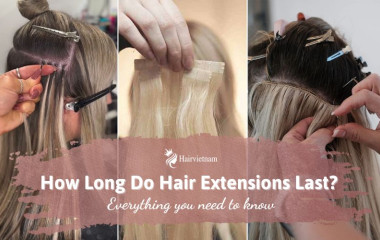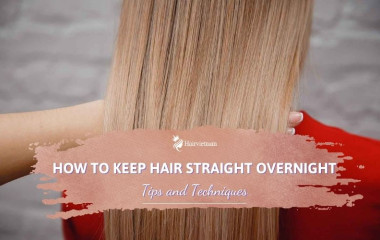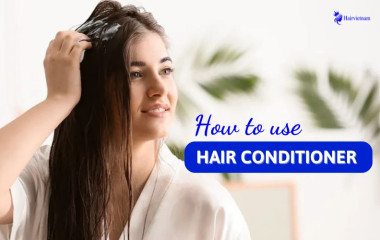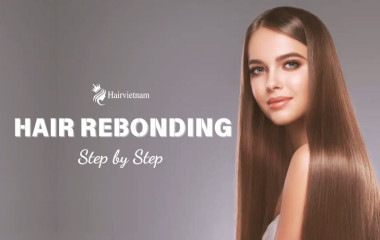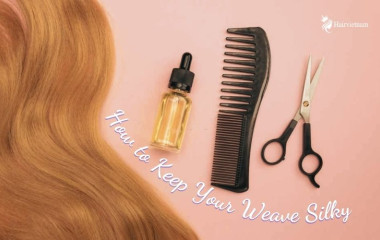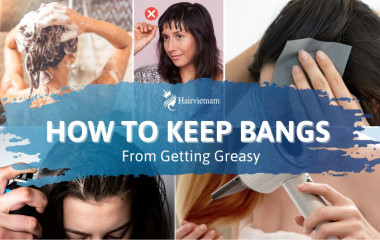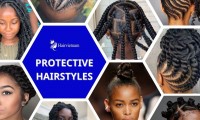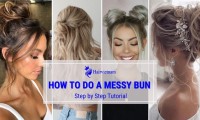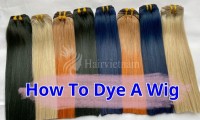Hair Break: Causes, Prevention, and Solutions
02/04/2024
Content
Why does your hair break? Discover the causes, prevention methods, and effective solutions in our comprehensive guide to understanding hair breakage.
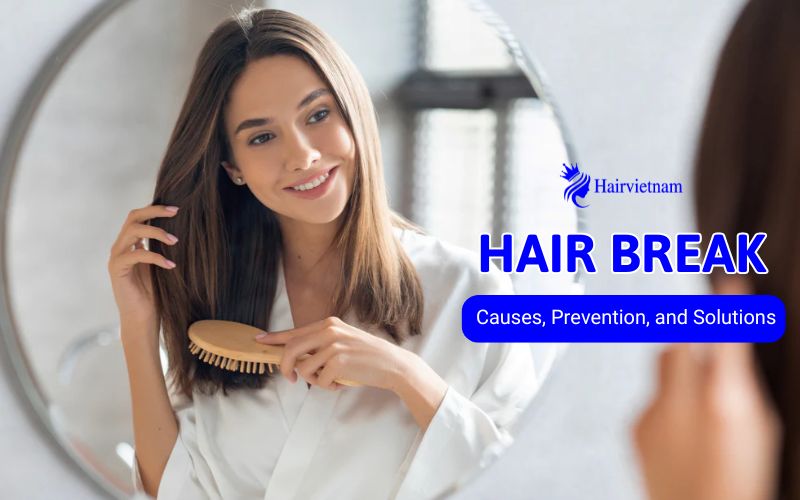
Hair break is a common concern for many, but understanding its origins and practical prevention methods can make a significant difference. In this blog, we'll give answers to your all questions, why is my hair breaking at the top? why is my hair breaking so bad? how to stop hair from breaking? how to prevent hair breakage? We’ll delve into the factors behind hair breakage, offer straightforward tips for prevention, and provide actionable solutions for maintaining healthy hair. Whether you're experiencing breakage at the top, in the front, or elsewhere, this guide aims to equip you with the knowledge you need. Let's get started!
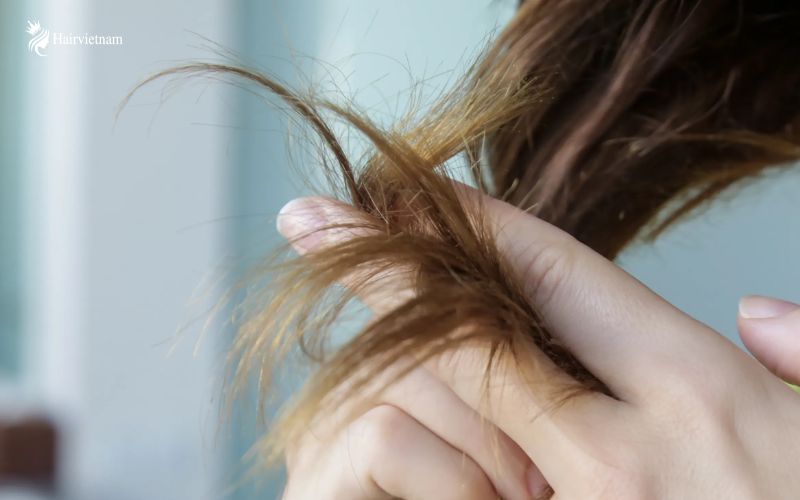
Why is my hair breaking off?
Recognizing the basic causes of the hair breakage is an essential aspect in achieving an effective plan of hair care and a healthy scap.
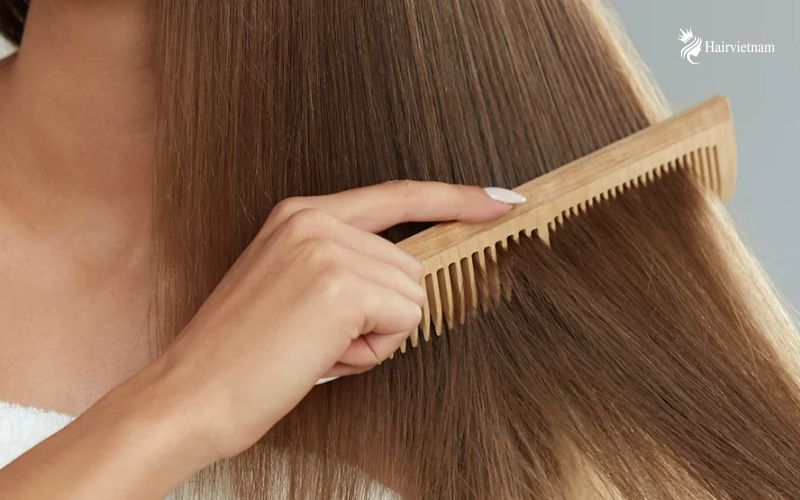
How to Prevent Hair Breakage?
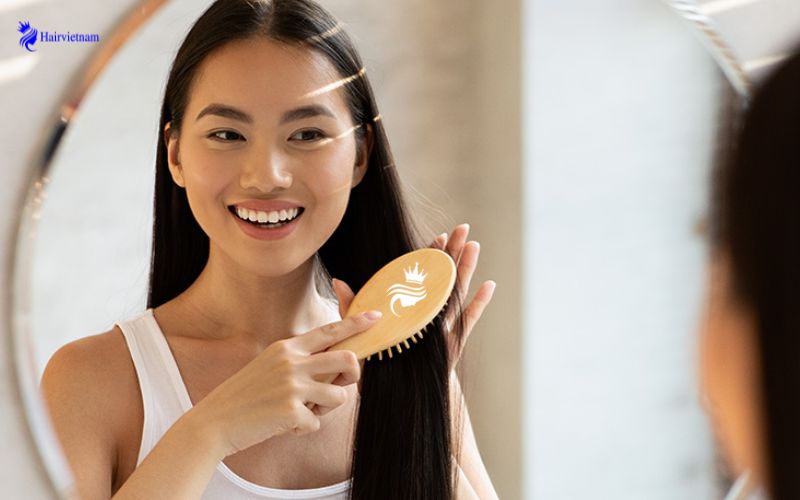
How to Stop Hair from Breaking
As for application, the creamworks best on clean, damp hair, where it is effectively rubbed into the middelengths and ends of tresses. Then it should be left on for as long as the treatment instructions recommend and finally rinsed off.

1. Why is my hair breaking off?
Hair break happens when the hair shaft specifically becomes fragile causing it to disintegrate or snap. What causes hair to break? Several factors contribute to this vulnerability, including:
Why is my hair breaking off?
- Overprocessing: Some women repeatedly use hair styling tools that need excessive heat, they apply the bleach or colorant to their hair and they constantly use harsh hair products which can eliminate hair natural oils or protein, this in turn will make hair to be brittle and prone to break.
- Poor Hair Care Practices: During styling, brushing, or towel drying, hair is subjected to various mechanical actions which result in such damages and breakage. Besides, important enough, metal clips or elastic bands that were too strong will cause your hair shaft to weaken.
- Environmental Factors: Hair is exposed to the harsh environmental conditions like sun, wind, and pollution which in turn, can damage the cuticle of the hair making it more fragile and allow it breakage.
- Nutritional Deficiencies: A diet that has however no nutritional value like protein, vitamins and minerals is likely to be deficient and can affect the toughness and health of you hair, making it more prone to breakage.
- Genetics: Certain individuals may inherently have weaker hair or due to genetic factors which can largely contribute to breakage of their locks.
Recognizing the basic causes of the hair breakage is an essential aspect in achieving an effective plan of hair care and a healthy scap.
Learn More: What Causes Split Ends Hair?
2. How to Prevent Hair Breakage?
Restraining of the hair break involves an all-round method that includes both external as well as internal factors. Here are some comprehensive tips to help you maintain strong, resilient hair:
How to Prevent Hair Breakage?
- Limit Heat Styling: Minimize your use of heat tools like flat irons and curling wands and remember to apply a thermal protection spray before styling for less damage and easier maintenance. Choose an air-drying, instead, whenever you can, keeping dry styling for special cases. For those looking to enhance their hair without heat damage, HairVietnam Hair Extensions offer a versatile solution for added length and volume.
- Be Gentle: Avoid doing intense things to your hair when it's wet, as it is at this point that the hair is more prone to breakage. Skip vigorous wiping with a towel and turn to a microfiber cloth or T-shirt to gently squeeze out water. Try to avoid pulling your hair as you remove the knots and start from the ends of the strand while brushing.
- Choose Gentle Hair Products: If you want to limit the amount of damaging shampoos and conditioners that you use, you should pick sulfate-free variations that have been designed for your hair type. If you are looking for a product that will hydrate you hair, search for ingredients like argan oil ……. Try to use products that are free from harsh sulfates, alcohol, and silicones since they can be very disruptive to your hair, causing its natural oils to be stripped and be prone to breakage.
- Protect Your Hair: Protect your hair from the detrimental effect of extreme elements as you go out in the sun for longer periods or have to brave harsh weather conditions, using a hat, scarf, or other protective gear. Once you are swimming in chlorinated pools or saltwater, wet your hair and apply an acid leave-in conditioner (leaving-in or oil). It will create a protective barrier prevent dressing.
- Eat a Balanced Diet: Have a protein rich diet which is also a good source of Vitamin B and Vitamin E aside from other minerals like iron and zinc. Both of these are very necessary for your hair to grow properly. Find balance by adding foods such as eggs, fish, nuts, seeds, dark leafy greens, and fruits into your diet for getting those needed nutrients to your hair from inside out.
- Stay Hydrated: Besides, an adequate amount of water should be drunk every day to maintain the water level and ensure healthy growth of your hair. Dehydration may cause damaged hair due to the drying out and brittleness of such hair, and deficient water intake may contribute to the brittleness of hair by lead the damage, thus, one should at least intake eight glasses of water per day.
- Trim Regularly: Set up biannual trimmings at least every 6-8 weeks for keeping split ends from moving up the hair shaft hence causing even more problems. At the same time, you will make your hair grow long, you should give hair trim regularly not to damage its health and looks.
- Use Caution with Chemical Treatments: Among the ways to protect your hair is coloring, dyeing or other chemical treatment of your hair. It is highly recommended to spread them out to minimize the damage caused. Additionally, you should always follow up with deep conditioning treatments in order to restore moisture and strength. Select mild, ammonia-removeable hair dyes and engage in expert treatments by professional stylists when possible, to ensure the least side effect of the damage. Create your own English quote.
3. How to Stop Hair from Breaking
If you're already experiencing hair breakage, don't despair—there are steps you can take to help repair and strengthen your hair;
How to Stop Hair from Breaking
Deep Conditioning Treatments:
Include in your topical routines once a week the process of deep conditioning with a mask or other similar product. This will help to restore the lost moisture and will ensure that the hair stays beautiful. Seek out goods that are made with ingredients like coconut oil, shea butter, avocado oil or honey classified as moisturizers and repair agents.As for application, the creamworks best on clean, damp hair, where it is effectively rubbed into the middelengths and ends of tresses. Then it should be left on for as long as the treatment instructions recommend and finally rinsed off.
Protein Treatments:
Be sure to use protein-rich treatments or hair masks that will help strengthening your hair's shaft and reducting the breakage. It is important to search for the products within which hydrolyzed keratin, silk amino acids or wheat protein; they can help to be the hair structure and improve the hair receptiveness. Remember not to over-do protein treatments, excess use of which can lead to stiff hair appearing to be separated from the scalp. On the occasion of the date, release new content, such as a short video, a game, or tips for relationship growth.Scalp Massage:
Stimulate the blood flow to the scalp by doing scalp massages with nourishing coconut oil, castor oil, or jojoba oil for instance. By stroking your scalp, not only does your body get a relaxing feeling, but increased blood flow also allows it to deliver the necessary nutrients to hair follicles and thus results in better hair growth. Apply a little bit of oil to your fingertips and slowly rub it on scalp in circular motions during 5 to 10 minutes before shampooing.Avoid Over-Manipulation:
Minimize as much as you can the styling and manipulation of your hair because it needs a break, and it will grow healthier if you allow it a break. Try not to over brush, comb or manipulate your hair, altogether especially if it is wet, it is usually more fragile and likely to break. Change your styling game and opt for low-maintenance styles like buns that let your hair do its own thing with minimum effort. Give it some breathing space between heating treatment and tight braids.Protective Hairstyles:
Play around with protective hairstyles for example, braids, twists, buns, and wigs to keep the manipulation to a minimum and also your hair safe from the further abuse. Hair management techniques can serve as a barrier that isolates your hair from the hazardous effects of the outside environment, thus reducing damage, breakage as well as knotting. Make sure that you properly seal and moisturize your hair before styling with protectives, and try to take them out as soon as possible to escape tension and breaking.Learn More: Protective Hairstyles





_cr_380x240.jpg)
